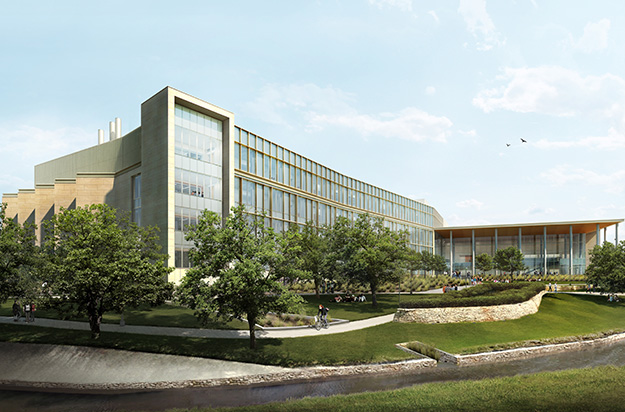Winter 2016: Energy Evolution
From carbon dioxide conversion to landfill mining, researchers at UTA are seeking viable alternative energy options.
Skip to content. Skip to main navigation.
From carbon dioxide conversion to landfill mining, researchers at UTA are seeking viable alternative energy options.
Found in everything from space shuttles to dental fillings, composite materials have thoroughly infiltrated modern society. But their potential is still greatly untapped, offering researchers ample opportunity for discovery.
Within the particle showers created at the Large Hadron Collider, answers to some of the universe’s mysteries are waiting.
Model systems like pigeons can help illuminate our own evolutionary and genomic history.
UT Arlington's tiny windmills are bringing renewable energy to a whole new scale.
The stability of our highways, pipelines, and even manholes is reaching a breaking point.
Scientists believe they have discovered a subatomic particle that is crucial to understanding the universe.
UT Arlington researchers unlock clues to the human body’s most mysterious and complex organ.
UT Arlington researchers probe the hidden world of microbes in search of renewable energy sources.
Wounded soldiers are benefiting from Robert Gatchel’s program that combines physical rehabilitation with treatment for post-traumatic stress disorder.
Tiny sensors implanted in the body show promise in combating acid reflux disease, pain and other health problems.
Nanotechnology researchers pursue hybrid silicon chips with life-saving potential.
Biomedical engineers combat diseases with procedures that are painless to patients.

Late last October, UTA broke ground on the Science and Engineering Innovation and Research (SEIR) building, a $125 million, state-of-the-art facility that will be the heart of life and health science research on campus.
“This is another milestone in our journey to becoming the best university in Texas,” says President Vistasp Karbhari.
Already, SEIR is serving as a magnet to attract nationally recognized researchers and scholars. The new building will employ the modern concept of research lab “neighborhoods” to drive cross-disciplinary collaboration.
“We’re going to have a number of investigators in one area, on one floor, attacking a problem—disease, an abnormality, whatever it might be,” says Paul Fadel, associate dean of research for the College of Nursing and Health Innovation. “What that means is we can take it from the whole human body, physiology, down to the cellular and molecular levels, and I think that is really going to advance our research capabilities in quite a distinct way from other places.”
In addition, the building will house the North Texas Genome Center, a key research hub that will help meet the growing demand for whole genome sequencing.